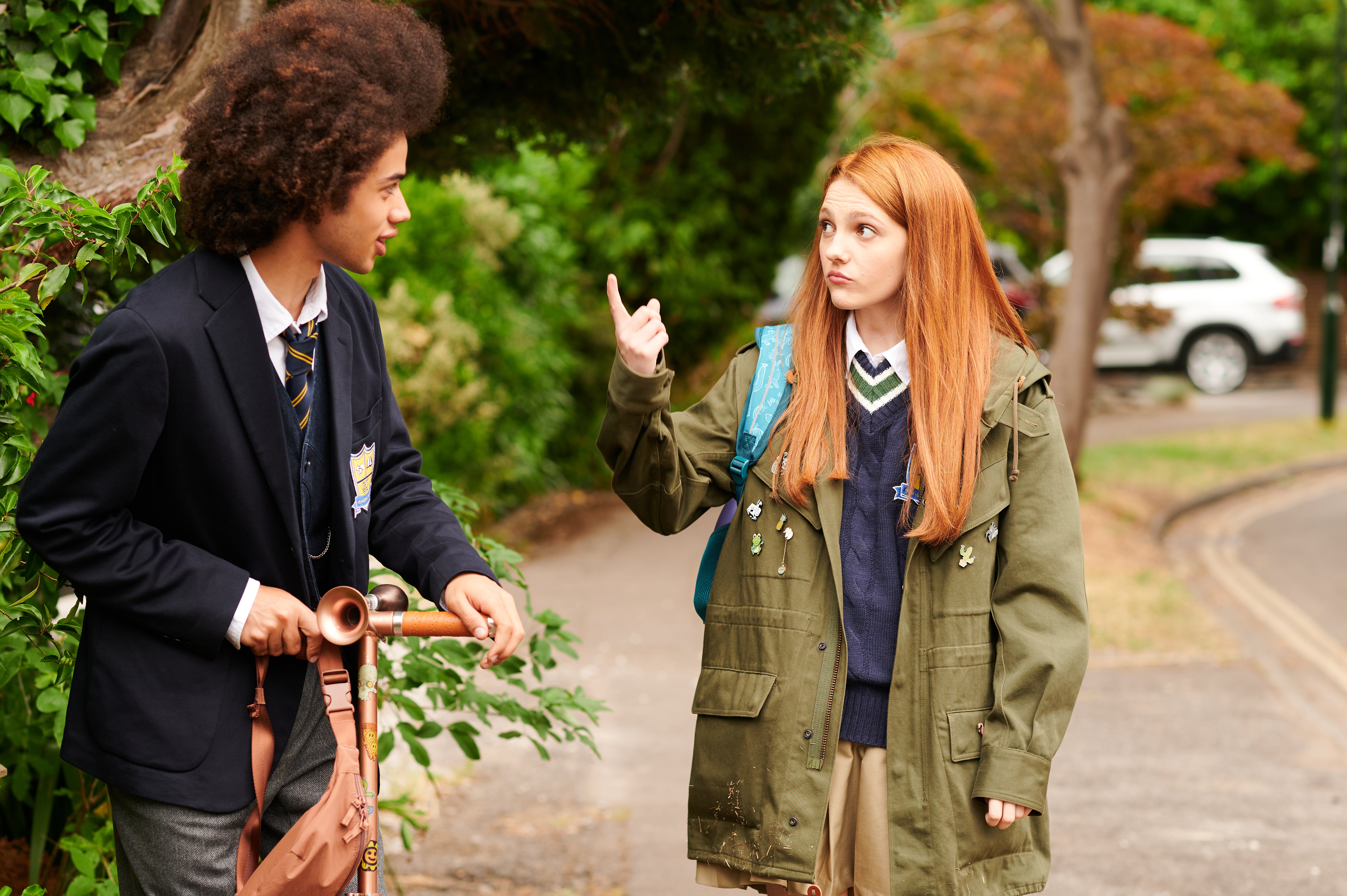Geek Girl author Holly Smale hits back at criticism over Netflix show’s autism depiction
Author of best-selling YA novel addressed claims that the series isn’t ‘authentic’

Your support helps us to tell the story
From reproductive rights to climate change to Big Tech, The Independent is on the ground when the story is developing. Whether it's investigating the financials of Elon Musk's pro-Trump PAC or producing our latest documentary, 'The A Word', which shines a light on the American women fighting for reproductive rights, we know how important it is to parse out the facts from the messaging.
At such a critical moment in US history, we need reporters on the ground. Your donation allows us to keep sending journalists to speak to both sides of the story.
The Independent is trusted by Americans across the entire political spectrum. And unlike many other quality news outlets, we choose not to lock Americans out of our reporting and analysis with paywalls. We believe quality journalism should be available to everyone, paid for by those who can afford it.
Your support makes all the difference.Author Holly Smale has hit back at criticism of the Netflix adaptation of her book, Geek Girl.
The popular YA book series, published in 2015, has been turned into a 10-part series, starring House of the Dragon actor Emily Carey as 16-year-old self-declared geek Harriet Manners, who gets bullied at school until a modelling agency scouts her during a field trip to London Fashion Week.
While the show has been met with praise from critics, it has faced criticism over the authenticity of its portrayal of autism through Carey’s character Harriet.
Smale defended the show on X/Twitter, arguing that it is authentic, since she, and the lead actor Carey, are both austistic.
“It’s based on books written by me (autistic), about me as a teen (autistic),” Smale wrote.
“I wrote all of Harriet for the show (still autistic) and the lead actor is autistic.”
The author continued: “I think people are so used to seeing inauthentic representation they don’t recognise it when it’s in front of them. And, honestly, I don’t really blame them.”
Geek Girl isn’t the first YA Netflix series to include autistic representation. The Australian teen series Heartbreak High sees actor Chloé Hayden, Australia’s first autistic actress in a mainstream series, portraying year 11 student Quinni, who is autistic.

When it comes toGeek Girl, Harriet’s character is not described as autistic or neurodivergent in the series, but her enthusiasm for subjects, wearing of headphones in the classroom and her internal dialogue presented – through voiceover – while in busy or loud environments, are clearly designed to allude to the likelihood of a possible diagnosis, without explicitly stating it. Other moments include when Harriet notices conflict in her relationship with her best friend Nat, and asks her: “Are we arguing right now?”
It marks a difference from other YA series’ inclusion of autistic characters. In Heartbreak High, there is a scene where Quinni is forced to explain her autism to her friends, who are left confused when she has a non-verbal period.

In a four-star review of Geek Girl,The Guardian’s Lucy Mangan questioned whether explicitly stating that Carey’s character is autistic would have communicated a different message.
“The question of whether she will or should be given the diagnosis is an interesting one – does it shut down conversation or open one up? Do you champion visibility or avoid labels and circumscription? When does eccentricity become a medical matter? Such questions run underneath the fun, but are probably better wrestled with after the credits roll.”

Watch Apple TV+ free for 7 days
New subscribers only. £8.99/mo. after free trial. Plan auto-renews until cancelled

Watch Apple TV+ free for 7 days
New subscribers only. £8.99/mo. after free trial. Plan auto-renews until cancelled
The Geek Girl books series was written before Smale was diagnosed with autism and dyspraxia a few years ago, at the age of 39, but she has retroactively described Harriet as having both conditions as well.
Smale has received praise from viewers, who say the subtle nods to Harriet’s autism normalise it, rather than making it a “trope” in the series.

“It feels very authentic because the focus is not what makes Harriet autistic but it’s what makes Harriet, Harriet,” said one viewer. “In that sense, it’s all authentic and natural, and not something set aside from who she is.”
Another added: “I think the great thing about your books (not started the TV series yet) is that you wrote them not knowing and so not being influenced by how it should or shouldn’t come across.”
Smale responded: “Exactly. I was focused on telling the truth about how it felt, so it’s the opposite of a ‘trope’.”

Another viewer praised Smale for not using the label: “As an autistic person, I loved this show. I relate to Harriet’s behaviours, though I am nowhere near being a supermodel. Once you recognise the autistic traits, it’s blindingly obvious.”
Smale replied, saying that she wanted to keep the show as close to the books as much as possible, since she wrote them while undiagnosed.
“Being undiagnosed as a girl is a whole thing in and of itself and true for the majority of autistic girls,” she concluded.
Geek Girl is now streaming on Netflix.
Join our commenting forum
Join thought-provoking conversations, follow other Independent readers and see their replies
Comments